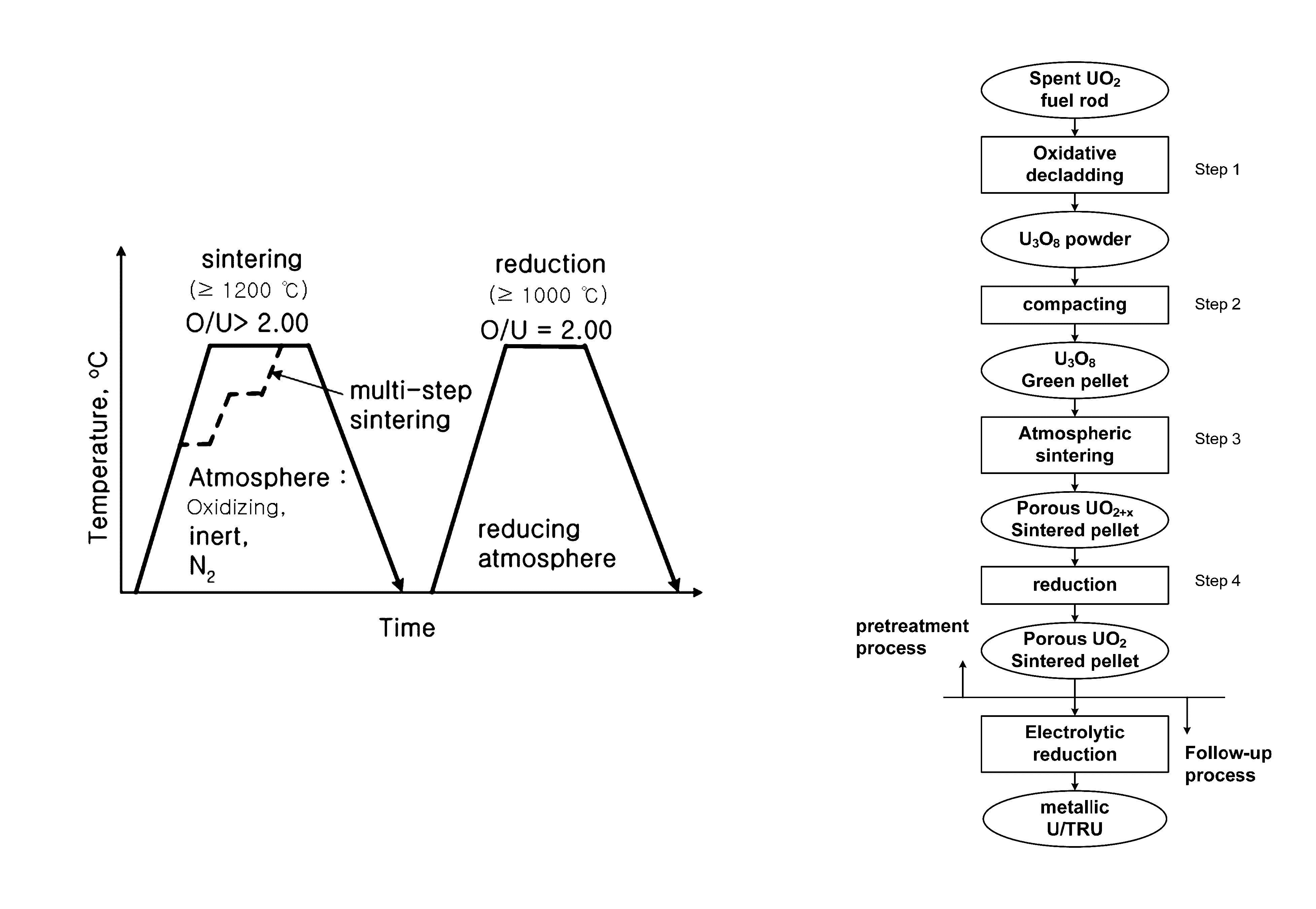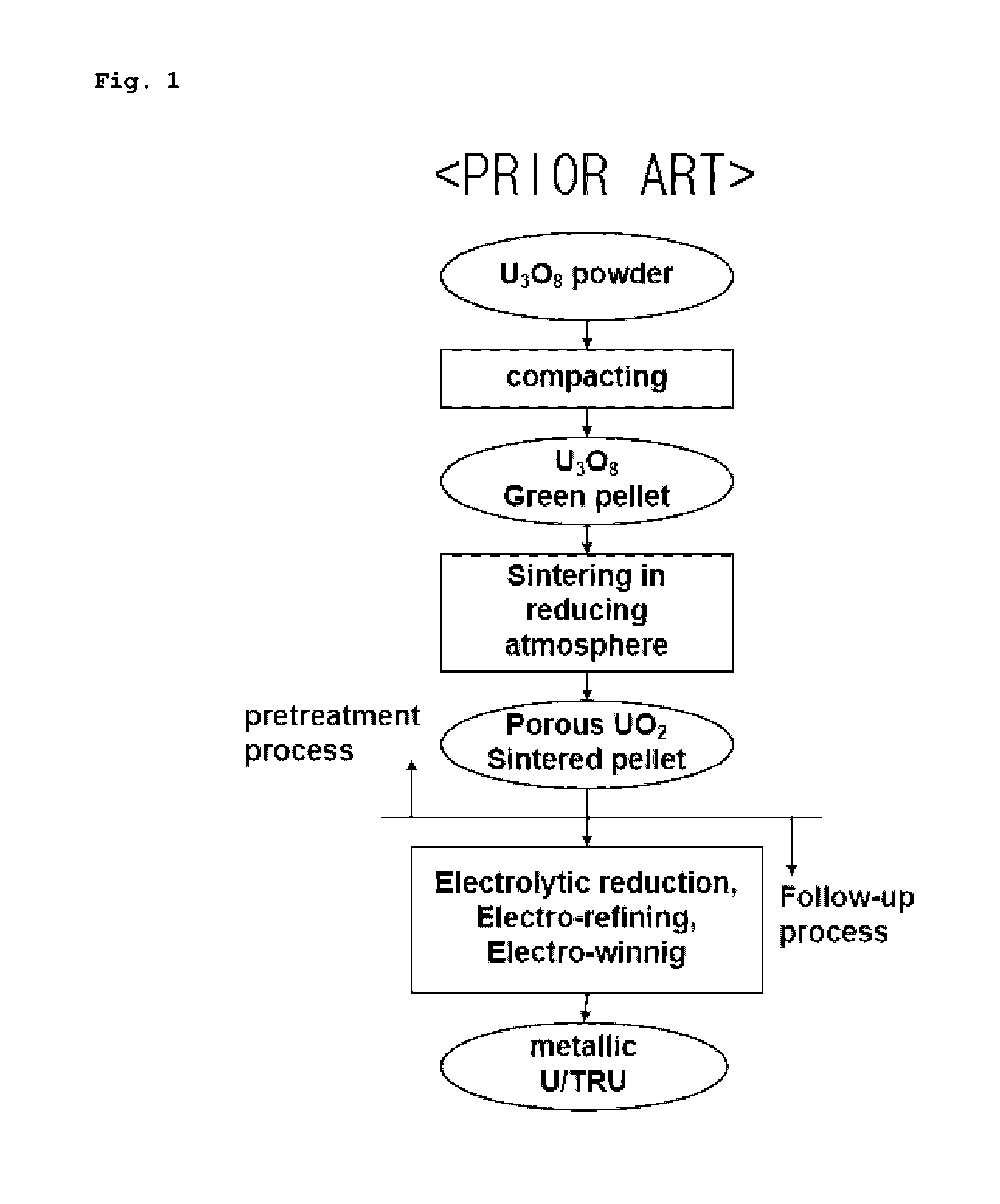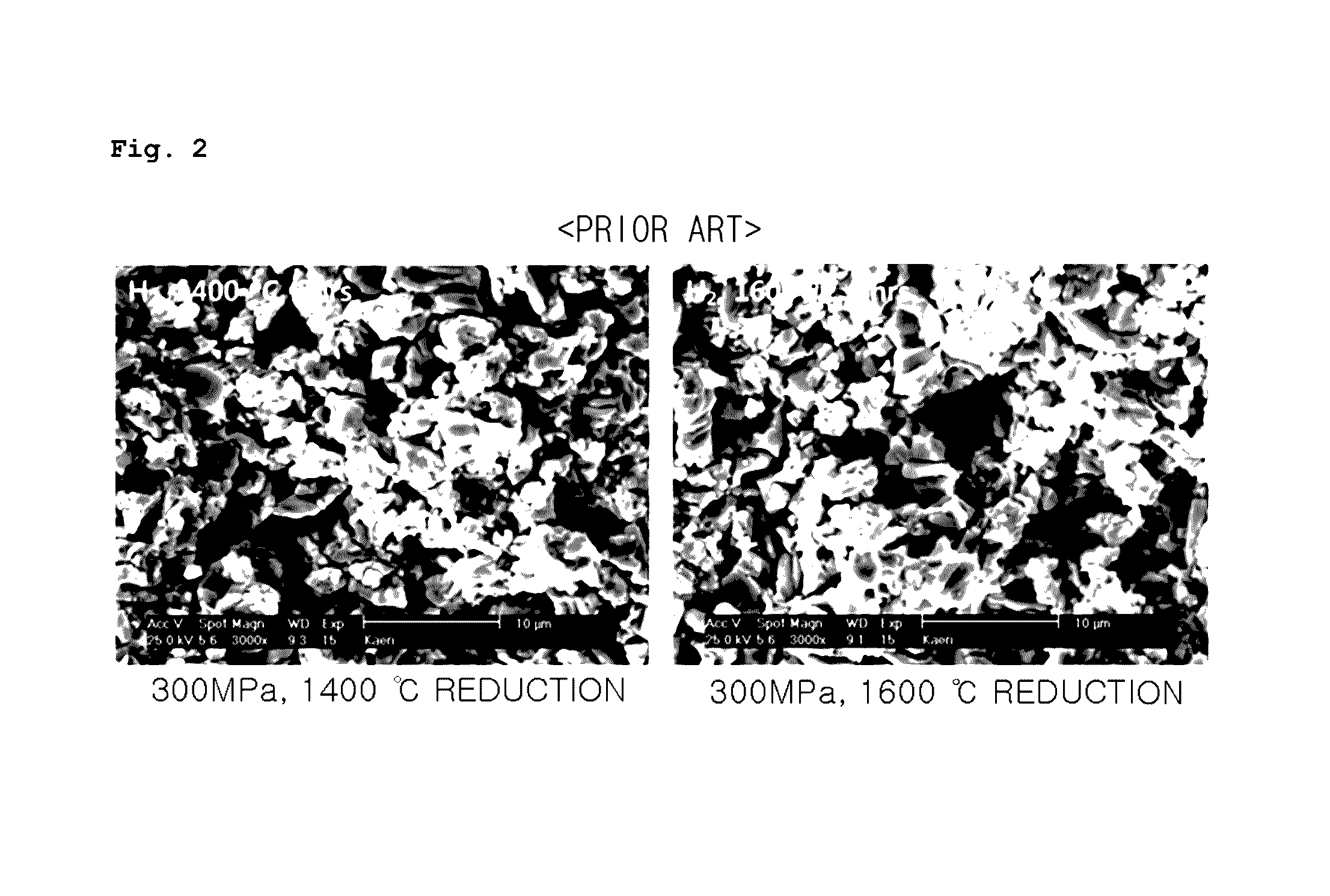Porous UO2 sintered pellets and method for fabricating porous UO2 sintered pellets and electrolytic reduction using same
a technology of porous uo and sintered pellets, which is applied in the field of porous uo sub > 2 /sub > sintered pellets and electrolytic reduction methods using same, can solve the problems of unnecessarily affecting the process, inefficient recycling, and inability to maintain the shape of sintered pellets, so as to facilitate the penetration of electrolyte during reduction, increase the efficiency of electrolytic reduction, and facilitate the effect of reduction
- Summary
- Abstract
- Description
- Claims
- Application Information
AI Technical Summary
Benefits of technology
Problems solved by technology
Method used
Image
Examples
example 1
Fabrication 1 of Porous UO2 Sintered Pellets
[0054]U3O8 powder was produced using an unirradiated UO2 sintered pellets, instead of an irradiated uranium dioxide (UO2) sintered pellets from a furnace. The unirradiated UO2 sintered pellets exhibited approximately 96% T.D. for the sintered density. The unirradiated UO2 sintered pellets were oxidized at 450° C. under an air atmosphere for 4 h, and as a result of oxidation of UO2 sintered pellets into U3O8, a density decrease and subsequent volume expansion, U3O8 powder was produced. The produced U3O8 powder had an average particle size of 10 um, and a specific surface area of 0.56˜0.74 m2 / g.
[0055]The produced U3O8 powder was charged into press dies, and fabricated into cylindrical pellets (diameter, 10 mm, length, 8 mm, and weight, about 4 g) under a compacting pressure of 100, 300, and 500 MPa, with a deviation of the compacting pressure within 10 MPa. The green densities of the fabricated green pellets were 58-59% T.D. under a compacti...
example 2
Fabrication 2 of Porous UO2 Sintered Pellets
[0057]Porous UO2 sintered pellets were fabricated in the same manner as that explained in Example 1, except for the difference that the sintering was performed in a carbon dioxide (CO2) gas atmosphere instead of an air atmosphere.
example 3
Fabrication 3 of Porous UO2 Sintered Pellets
[0058]Porous UO2 sintered pellets were fabricated in the same manner as that explained in Example 1, except for the difference that the sintering was performed in a nitrogen (N2) gas atmosphere instead of an air atmosphere.
PUM
| Property | Measurement | Unit |
|---|---|---|
| temperature | aaaaa | aaaaa |
| pressure | aaaaa | aaaaa |
| temperatures | aaaaa | aaaaa |
Abstract
Description
Claims
Application Information
 Login to View More
Login to View More - R&D
- Intellectual Property
- Life Sciences
- Materials
- Tech Scout
- Unparalleled Data Quality
- Higher Quality Content
- 60% Fewer Hallucinations
Browse by: Latest US Patents, China's latest patents, Technical Efficacy Thesaurus, Application Domain, Technology Topic, Popular Technical Reports.
© 2025 PatSnap. All rights reserved.Legal|Privacy policy|Modern Slavery Act Transparency Statement|Sitemap|About US| Contact US: help@patsnap.com



